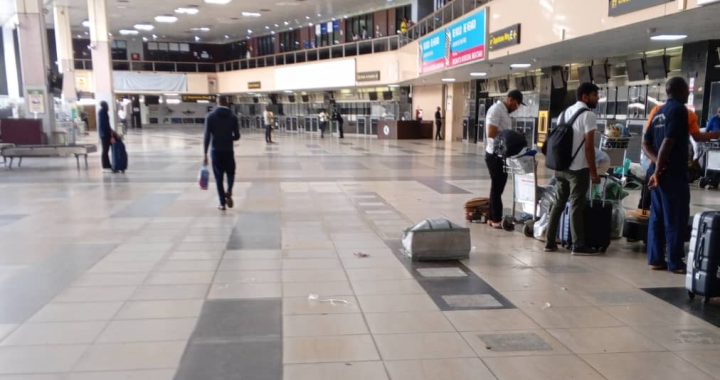COVID-19: Hospitality, its ancillary sectors at the throes of death
3 min read
The federal government has been called upon to give very urgent attention to a N1.5trillion worth of industry that is already on its knees and going by the trajectory since the lockdown began in March 2020, hospitality is at the verge of total collapse.
By the industry’s present parlous condition, it should be at the intensive care unit for very urgent attention for survival but sadly, its yet to secure a bed space, let alone being assigned a physician.
Blaring alarm on the looming danger to the national economy, the Lagos Chamber of Commerce and Industry (LCCI) had screamed from the roof top that, there is a risk of massive job losses in the hospitality sector, if an urgent rescue plan is not put in place to save it without further delay.
LCCI’s Director-General, Dr. Muda Yusuf, made the declaration in a
statement on Monday in Lagos,
urging government to, as a matter of urgency, include the hospitality sector in
the Economic Sustainability Plan (ESP), to prevent shocks of the pandemic from
crippling the once flourishing sector of the nation’s economy.
Yusuf emphasized the need for specific intervention measures for the sector as done for others affected by the shocks of the pandemic. He noted that the hospitality business in Nigeria was one of the most dynamic, innovative and fast-growing sectors of the economy before the advent of the Coronavirus pandemic.
He highlighted the status of the sector before the covid-19 pandemic as, one of the most dynamic, innovative, fast growing and labour intensive with very high employment elasticity. All of these the statement said, the pandemic had swept away and the containment measure grossly inadequate.
The statement further stated that, “there is also the collateral adverse impact on thousands of small businesses that are dependent on the hospitality business as suppliers or service providers. Poultry and fish farmers, for instance, have lamented the impact of the downturn of the hospitality business on their sales and profitability. The hospitality sector and restaurants are the biggest off takers of the poultry and fish products in the economy,” he said.
He highlighted that the food and beverages sector also suffered terrible casualty. The statement announced that, “the breweries and bottling companies have suffered a major hit as a result of the tumbling fortunes in the hospitality business. The sector is one with diverse linkages across many sectors of the economy, which explains the secondary transmission of the shocks to many other segments of the economy”
PROPOSED STIMULUS
The LCCI DG requested that the palliative measures as outlined for the revival of the aviation sector and more, should be replicated for the hospitality industry. He explained that both hospitality and aviation sectors are closely related, complementary and interdependent.
He frowned at the Federal Government’s Economic Sustainability Plan (ESP) saying, “what currently exists in the ESP is only a passing mention of the hospitality sector with no prescribed specific measures and budget,” he said
Yusuf mentioned that his proposed stimulus measures will engender sustainability of the sector, if CBN mandate banks to provide a single digit soft loans with long term repayment plan. Grant support, including payroll support, to the hospitality industry and related services. Deliberate measure for restructuring of existing facilities with commercial banks and concessions on interest payments.
The LCCI helmsman made an appeal for deferred payment of taxes and filing dates and one-year waiver for Land Use Charge, and Lagos State Signage and Advertisement Agency’s (LASAA) Advertisement Rates.
The statement chronicled LCCI position on structured stimulus to hospitality and its ancillary sector thus, “also, we recommend one-year waiver for hotel renewal fees and other state levies and fees of hotels and resorts. Also one-year waiver of Local Government fees and permits.”
He averred that, “It is in the interest of the economy for the hospitality industry to be supported by the federal and state governments, to recover from the devastating shocks inflicted by the COVID-19 pandemic and the associated containment measures,” he said.
Dr. Muda Yusuf called on the Federal Executive Council, FEC, to issue a
clear mandate to the Federal Ministry of Tourism, Trade, and Central Bank of
Nigeria, CBN, while at the State Government level, concerned ministries, and
departments are also to be mandated to, as an emergency, ensure the realization
of the deliverables.
![]()








